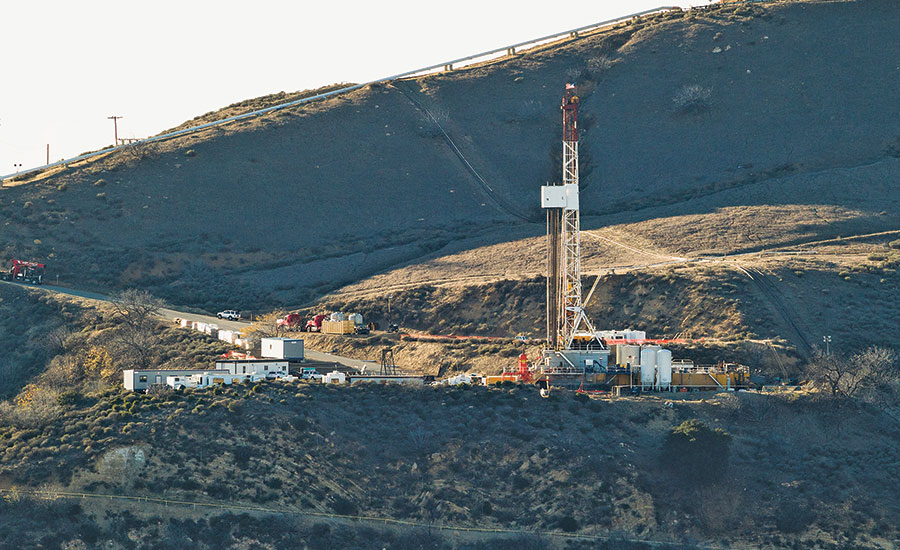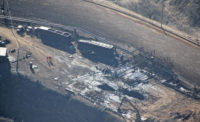Even as drilling crews are getting closer to capping a natural-gas well that has spewed thousands of metric tons of methane since last fall, Los Angeles County District Attorney Jackie Lacey has filed criminal charges against utility Southern California Gas Co. for failing to immediately notify authorities of the rupture within the largest underground natural-gas storage facility west of the Mississippi River.
“We will do everything we can as prosecutors to help ensure that the Aliso Canyon facility is brought into compliance,” Lacey said in a statement related to the Feb. 2 filing. “I believe we can best serve our community [by] using the sanctions available through a criminal conviction.”
The Aliso Canyon well, which has been leaking since Oct. 23, has released about 80,000 metric tons of methane and forced thousands of residents to relocate because of noxious fumes, say the California Air Resources Board and media reports. The utility says it is pumping in fluids to control gas emissions and expects to cap the leak, about 1.6 miles underground, with cement by the end of February. “The closer crews get to the intercept point, the more analysis and precision is required, so the process necessarily slows down,” SoCal Gas said in a Feb. 8 statement. According to the Los Angeles Times, the firm has tried at least seven times, unsuccessfully, to plug the well.
“The well is located in an isolated mountain area more than a mile away from and more than 1,200 feet higher than the closest home or public area. The human health threat has been minimal,” SoCal Gas said in a statement. “Scientists agree [that] natural gas is not toxic and that its odorant is harmless at the minute levels at which it is added to natural gas.”
Despite the assurances, public outrage continues to grow. Along with criminal charges against the utility, Assemblyman Mike Gatto (D-Los Angeles), chairman of the state Utilities and Commerce Committee, on Feb. 3 announced an amendment to reform constitutional protections currently given to the California Public Utilities Commission. “After hearing about how the clear warnings of the impending Aliso Canyon gas leak were lost in the shuffle, we need to rethink the way we regulate utilities in this state,” he said in a statement. “Our concern is that the [commission] is too big to succeed. It is time to hit the ‘reset’ button.”
University of Southern California engineering professor Najedin Meshkati, who has served on two national investigative panels and studied the Fukushima and BP Deepwater Horizon disasters, agrees that the commission needs a “complete overhaul” in the wake of the leak. “Where’s the regulator?” asks Richard Kuprewicz, president of Accufacts Inc., a Bellingham, Wash., pipeline safety consultant. “It’s clear that they’ve lost control [and] that the checks and balances weren’t in place. It’s embarrassing how many major mishaps we’re having, and I’ve yet to see one that couldn’t have been prevented.”



Post a comment to this article
Report Abusive Comment